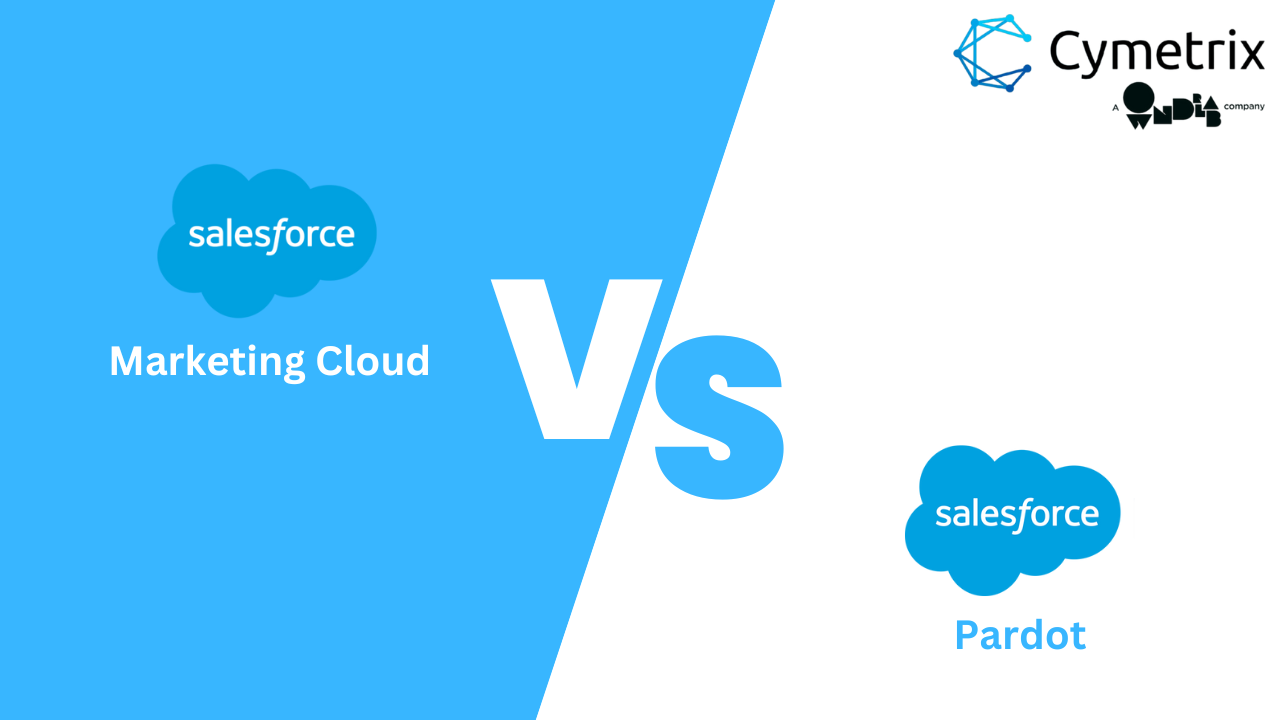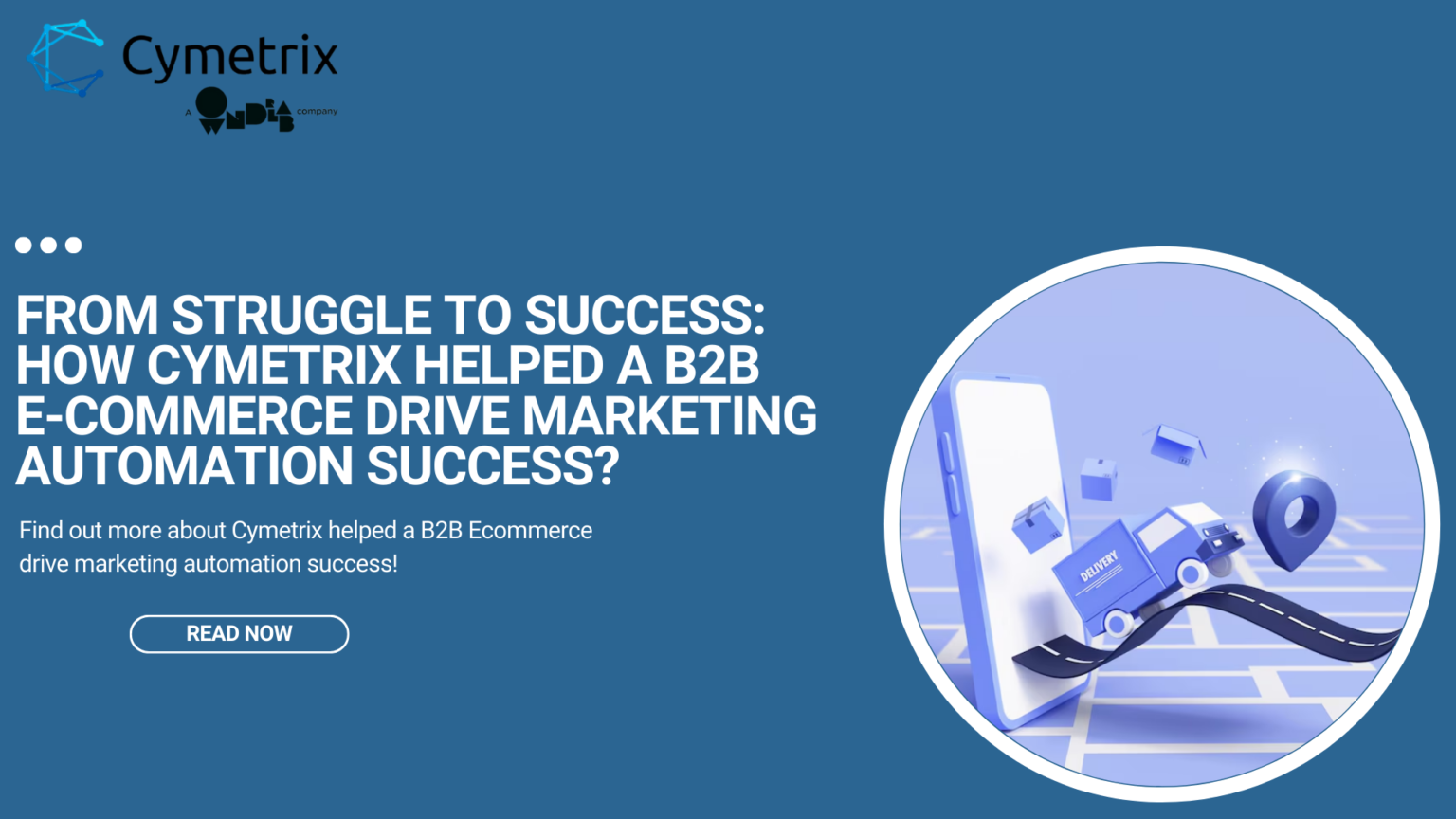
Are you confused – trying to choose between Omnichannel and multichannel market? At first glance, they might seem like the same thing, but the approach and way you use these strategies differ quite a lot. So, keep reading to find out more about Multichannel Marketing vs Omnichannel Marketing!
Introduction
Let’s break a common myth – “Omnichannel and Multichannel Marketing” are not the same thing!
This may come as a surprise to some people who have long believed that these were the same thing and even some marketers use both terms interchangeably. While both involve reaching customers across multiple channels, their approaches differ significantly.
Curious about how? Well, that’s what we’re getting deeper into today!
Over the years, as a Marketing automation company, Cymetrix has helped many businesses with their marketing strategy and the implementation of automation solutions. From that experience, we believe that understanding the nuances between these two concepts is crucial for businesses seeking to optimize their marketing efforts.
That’s why our marketing automation experts have put together these key distinctions to help you understand Omnichannel vs. Multichannel marketing and why it matters for your business.
What is Omnichannel Marketing and how does it work?
So, what is Omnichannel Marketing? To be precise, it’s a customer-centric marketing approach that integrates various channels to create a seamless and consistent experience across all touchpoints.
Rather than treating each platform—such as social media, email, or in-store interactions—as separate entities, omnichannel marketing ensures that all channels work together to deliver a unified message and experience. This strategy emphasizes continuity, meaning customers can transition smoothly between channels without losing the context of their interactions.
For example, a customer might start browsing products on a brand’s mobile app, add an item to their cart, and later receive an email reminder about that product. When they visit the physical store, the staff can access this information to provide better support and service to assist customers in completing the purchase. This level of integration creates a personalized experience, enhancing customer satisfaction and brand loyalty.
Thus, omnichannel marketing uses customer data across all platforms to deliver tailored messaging, recommendations, and services. The goal of omnichannel marketing strategy is to provide a cohesive, uninterrupted journey that makes customers feel valued, regardless of how or where they engage with the brand.
What is Multichannel Marketing and how does it work?
Multichannel marketing is a strategy where businesses engage with customers across multiple channels, such as social media, email, websites, and physical stores. However, these channels often operate independently of each other, without a unified experience linking them together.
Each platform in multichannel marketing serves as a separate point of interaction, allowing customers to choose how they want to engage with a brand but not necessarily connecting their experiences across channels.
For example, a customer may see an ad for a product on Instagram, visit the brand’s website to explore more options, and later go to a physical store to make the purchase. While all these channels provide interaction points, they do not communicate with each other to provide a cohesive journey. The focus in multichannel marketing is more on maximizing the number of touchpoints rather than ensuring they work in harmony.
In a multichannel marketing approach, each channel is optimized for its own performance, aiming to reach customers in as many places as possible. While this method allows businesses to extend their reach, it may lack the personalization and seamlessness that comes with omnichannel strategies.
Multichannel marketing works well for brands looking to establish a broad presence across different platforms, ensuring they capture customers wherever they prefer to engage.
Omnichannel vs. Multichannel Marketing
While both omnichannel and multichannel marketing aim to engage customers across various platforms, their approaches differ significantly in terms of strategy, integration, and customer experience. Below, we break down the key differences between Omnichannel vs. Multichannel marketing across several factors:
Focus on Experience vs. Reach
- Omnichannel Marketing: The primary goal of omnichannel marketing is to deliver a superior, personalized experience. It’s about quality over quantity—ensuring that the customer journey is smooth and cohesive across all channels, from the first point of contact to post-purchase support.
- Multichannel Marketing: Multichannel marketing prioritizes reach, aiming to engage customers across as many platforms as possible. While it provides numerous ways for customers to interact, the quality of the experience across these channels is not always synchronized or personalized.
Consistent Messaging
- Omnichannel Marketing: The essence of Omnichannel marketing is ensuring consistent and aligned messaging across all channels. Whether a customer is on social media, receiving an email, or visiting a physical store, the brand’s voice, tone, and offers remain uniform. This consistency reinforces brand identity and enhances customer trust.
- Multichannel Marketing: In a multichannel strategy, each platform may have different messaging or promotions, leading to a fragmented experience. For example, the messaging on Instagram may not match what a customer sees in an email newsletter or when they visit the website, which can create a disjointed brand experience.
Utilizing Customer Data
- Omnichannel Marketing: Omnichannel marketing heavily relies on customer data to understand preferences and behavior. This data is used to create a continuous journey across platforms, ensuring that every interaction is informed by the customer’s previous actions. This makes the experience more personalized and efficient.
- Multichannel Marketing: In multichannel marketing, customer data is often siloed, meaning it’s stored separately within each channel and not shared across platforms. As a result, brands may lack a comprehensive view of the customer’s journey, limiting their ability to deliver tailored experiences.
You may want to read: 5 ways to use data for creating marketing Magic for Ecommerce
Customer-Centricity
- Omnichannel Marketing: Omnichannel marketing places the customer at the center of the strategy. It uses data from various touchpoints to create personalized experiences, making sure the customer feels valued and understood. Every interaction feels tailored to the individual, with consistent messaging across each touchpoint.
- Multichannel Marketing: While multichannel marketing focuses on providing multiple ways for customers to engage with a brand, it doesn’t prioritize personalization or a unified experience. Each platform is treated as a standalone interaction point, focusing more on broad engagement, rather than customer-specific experiences.
Multichannel Retail vs Omnichannel Retail
- Omnichannel Retail: Omnichannel retail stays one step ahead of multichannel retail, it considers the needs and preferences of shoppers to reach them where they are by using all channels. For example, a brand can use a consistent ad using email/social media or a streaming platform to reach their shoppers rather than waiting for them to show up at their physical store.
- Multichannel Retail: This retail approach relies on using multiple sales channels as a touchpoint for the distribution and sales of their products. But it doesn’t mean a shopper will get the same experience across all the touchpoints. For instance, a buyer may like a product over the website, only to find out that it’s not available in the retail store near their location.
Multichannel retail is like driving on a highway (linear experience), while Omnichannel retail feels more like driving around road junctions (interconnected experience).
Omnichannel vs Multichannel Marketing: Which marketing strategy should you choose?
While omnichannel marketing might seem like the ideal choice, it’s important to consider your specific business needs and goals. The best strategy depends on factors such as your target audience, resources, and the complexity of your products or services.
When to Choose Omnichannel Marketing:
- If you have a large, diverse customer base that interacts with your brand across multiple channels.
- If your products or services are complex and require a high level of customer support.
- If you want to create a personalized and engaging customer experience.
- If you have the resources to invest in technology and data integration.
When to Choose Multichannel Marketing:
- If your target audience is primarily focused on a few specific channels.
- If your products or services are simple and easy to understand.
- If you have limited resources for technology and data integration.
- If you want to reach a wide audience without necessarily prioritizing a seamless customer experience.
Ultimately, the best marketing strategy for your business will depend on your unique circumstances. By carefully considering your goals and resources, you can make an informed decision that will help you achieve your marketing objectives.
Conclusion
So, Omnichannel is better, that’s what I should use? Well, it’s quite clear that Omnichannel marketing may have an upper hand over the multichannel approach, but there’s no clear answer on which one’s better and which one you should use.
As we mentioned above, the kind of strategy that you should use highly depends on your business and your goals. However, if you have a hard time figuring out which one’s the right approach or simply lack the expertise to strategize and implement the right plan, feel free to get in touch with our experts at Cymetrix.
With over, 100+ successful projects, we are a leading marketing automation company, who have successfully helped our clients all over the globe to achieve their marketing goals. Don’t wait, get started now!








